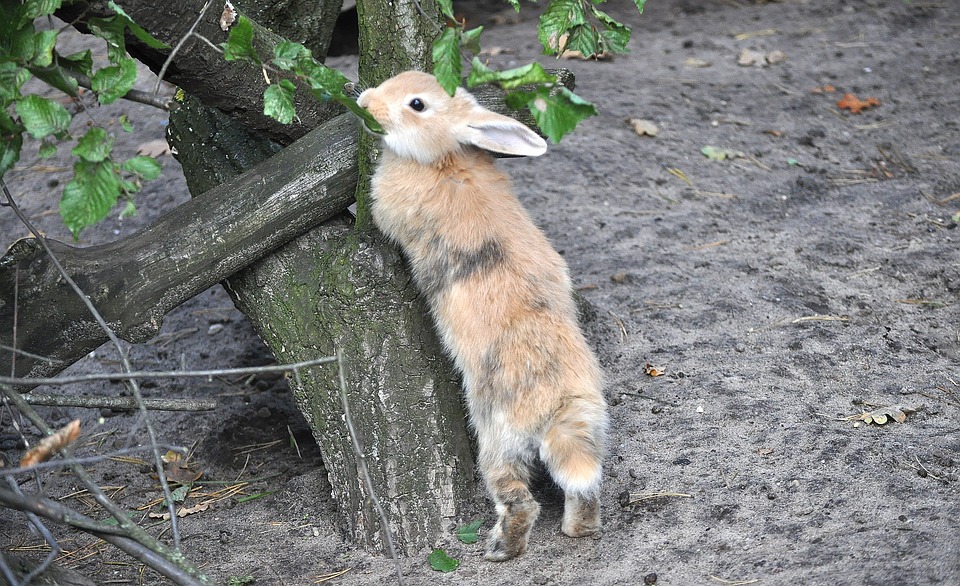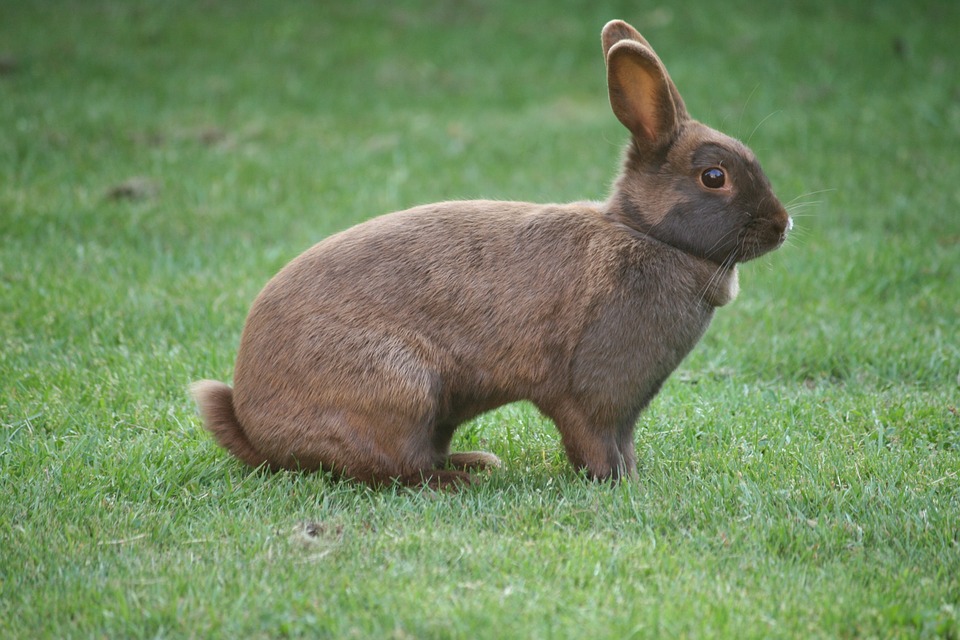This comprehensive guide delves into the fascinating world of rabbit sleep, exploring their sleep patterns, requirements, and unique behaviours. From understanding their sleep cycles to recognizing signs of sleep disturbances, we cover everything you need to know about ensuring your furry friend gets the rest they deserve.
Part 1: The Basics of Rabbit Sleep

1.1. Rabbit Sleep: A Unique Adaptation
- Rabbits are crepuscular animals, meaning they are most active at dawn and dusk. This adaptation allows them to avoid predators who are most active during the day and night.
- Their sleep patterns are divided into short naps throughout the day and a longer sleep period at night, typically lasting 8-9 hours in total.
- This is a significant difference from humans and other mammals, as rabbits have evolved to prioritize alertness and vigilance over extended periods of deep sleep.
Part 2: Exploring Rabbit Sleep Cycles

2.1. Light Sleep: A State of Vigilance
- In light sleep, rabbits are easily startled. Their eyes may flicker, their ears twitch, and they may shift their position.
- This stage allows them to quickly react to potential threats while still resting.
- Rabbits spend a larger proportion of their sleep time in this stage compared to other mammals.
2.2. Deep Sleep: A Time for Rest and Repair
- Deep sleep is characterized by complete relaxation, slow and regular breathing, and minimal muscle movement.
- During this stage, the rabbit's body can truly rest and repair itself from the day's activities.
- However, deep sleep is relatively short in rabbits compared to other mammals, reflecting their need for constant alertness.
2.3. REM Sleep: A Mystery in Rabbit Behaviour
- Rabbits experience rapid eye movement (REM) sleep, but it is less prominent than in humans and other mammals.
- The exact function of REM sleep in rabbits is still under investigation, but it is believed to play a role in memory consolidation and emotional processing.
- This stage is characterized by twitching whiskers, rapid eye movements, and occasional leg movements.
Part 3: A Closer Look at Rabbit Sleeping Positions
3.1. Common Sleeping Positions: A Reflection of Comfort
- Curled Up: This is the most common sleeping position, with the rabbit tucking its head under its body for warmth and security. This posture mimics the natural burrow environment, providing a sense of safety.
- Lying on its Side: This position indicates a relaxed and comfortable state, often seen in rabbits who feel safe and secure. They may stretch out their legs and relax their ears.
- Lying on its Back: This position is less common but can indicate a deep sleep or a sign of trust and contentment. It shows a high level of security and relaxation.
3.2. Unusual Sleeping Positions: A Sign of Vulnerability
- Standing Sleep: Rabbits may occasionally stand while sleeping, particularly when they feel vulnerable or need to be alert to potential threats. This position allows them to quickly react to danger.
- Sleeping with Eyes Open: Rabbits can sleep with their eyes open, although they are not truly asleep in this state. This is more of a state of light sleep or drowsiness, allowing them to stay alert to their surroundings.
Part 4: Factors Influencing Rabbit Sleep
4.1. Age and Health: A Spectrum of Sleep Needs
- Kittens: Young rabbits sleep more frequently and for longer durations than adults, typically around 12-14 hours per day. This reflects their rapid growth and development.
- Senior Rabbits: Older rabbits may experience changes in their sleep patterns, with increased napping and a reduction in overall sleep duration. This could be due to age-related changes in their physiology and health.
- Health Conditions: Ill or injured rabbits may sleep more than usual or exhibit unusual sleep behaviours. It is important to monitor their sleep patterns and consult a veterinarian if you notice any significant changes.
4.2. Environment and Lifestyle: Shaping Sleep Habits
- Light: Rabbits are sensitive to light and prefer dim or dark environments for sleeping. This reflects their natural nocturnal tendencies and their sensitivity to predators.
- Noise: Excessive noise can disturb a rabbit's sleep and cause stress. This is especially true for sensitive rabbits or those who are already anxious or distressed.
- Temperature: Rabbits are comfortable in temperatures between 60-70°F (15-21°C). Extreme temperatures can affect their sleep quality and overall health.
- Diet: A balanced diet is essential for overall health and sleep quality. A diet lacking in essential nutrients or high in sugary treats can lead to health problems and disrupt sleep.
Part 5: Identifying Signs of Sleep Disturbances
5.1. Common Sleep Problems: A Window into Rabbit Wellbeing
- Excessive Sleepiness: This could indicate illness, pain, or depression. It is essential to consult a veterinarian if you notice prolonged lethargy.
- Insomnia: Rabbits experiencing insomnia may be restless, anxious, or have difficulty settling down to sleep. This could be due to stress, pain, or an unsuitable environment.
- Nighttime Activity: Rabbits are typically crepuscular, but excessive nighttime activity could signal anxiety, boredom, or a lack of sufficient daytime activity. Provide mental and physical stimulation to reduce nocturnal restlessness.
5.2. Causes of Sleep Disturbances: Understanding the Root of the Problem
- Stress: Changes in environment, unfamiliar surroundings, the presence of predators, or even loud noises can disrupt sleep. Create a safe and predictable environment to reduce stress.
- Pain: Physical discomfort can make it difficult for rabbits to sleep comfortably. If you notice your rabbit favoring a certain leg or limping, consult a veterinarian.
- Boredom: Rabbits need mental and physical stimulation to prevent boredom and ensure restful sleep. Provide toys, puzzles, and playtime to keep them engaged and prevent restless behavior.
Part 6: Creating the Perfect Sleep Environment for Your Rabbit
6.1. Ensuring Safety and Comfort: A Secure Haven for Sleep
- Provide a quiet and dark sleeping area: A hutch, cage, or burrow-like space can create a secure sleeping environment. Make sure the sleeping area is draft-free and well-ventilated.
- Ensure a comfortable temperature: Avoid drafts and excessive heat. Provide a cozy bed with soft bedding to maintain a comfortable temperature.
- Offer a soft and comfortable bed: Hay, fleece, or a dedicated rabbit bed can provide a comfortable sleeping surface. Make sure the bedding is clean and free of dust mites.
6.2. Encouraging Restful Sleep: Setting the Stage for a Good Night's Rest
- Establish a regular sleep routine: Feed and play with your rabbit at consistent times to regulate their sleep cycle. This helps create a predictable routine, promoting relaxation and healthy sleep patterns.
- Provide mental and physical stimulation: Engage your rabbit with toys, puzzles, and playtime to reduce boredom and promote relaxation. This is crucial for preventing restless behavior at night.
- Limit noise and distractions: Create a peaceful environment free from loud noises and sudden movements. Consider placing the rabbit's sleeping area in a quieter part of the house.
Part 7: When to Seek Professional Help
- If you notice any significant changes in your rabbit's sleep patterns, such as prolonged sleepiness, insomnia, or excessive nighttime activity.
- If your rabbit is exhibiting other signs of illness or discomfort, such as lethargy, appetite changes, or difficulty breathing.
Part 8: FAQs: Answering Common Questions about Rabbit Sleep
8.1. Do rabbits sleep with their eyes open?
While rabbits can appear to be asleep with their eyes open, this is not true sleep. Their eyes may flicker, and they are likely in a state of light sleep or drowsiness. This allows them to stay alert to their surroundings while still resting.
8.2. How much sleep do baby rabbits need?
Baby rabbits, or kits, sleep significantly more than adult rabbits, typically around 12-14 hours per day. This reflects their rapid growth and development, and their need for frequent naps to support their energy demands.
8.3. Why do rabbits sleep in a huddle?
Rabbits huddle together for warmth, security, and social bonding. This behaviour is particularly common in cold weather or when they feel threatened. Huddling provides a sense of comfort and security, especially in unfamiliar or stressful environments.
8.4. Can rabbits sleep too much?
Excessive sleepiness in rabbits can indicate an underlying medical condition, such as illness, pain, or depression. If you notice a significant increase in your rabbit's sleep duration, it's essential to consult a veterinarian to rule out any medical causes.
8.5. How can I tell if my rabbit is stressed?
Stress can manifest in various ways in rabbits, including changes in sleep patterns, such as insomnia or increased nighttime activity. Other signs of stress include excessive grooming, hiding, and changes in appetite. Provide a calm and predictable environment to reduce stress levels.
8.6. What are the best sleeping positions for rabbits?
The most common and comfortable sleeping positions for rabbits include curled up, lying on their side, and lying on their back. However, standing sleep may occur when rabbits feel vulnerable or need to be alert to potential threats. Allowing your rabbit to choose their preferred position is important.
8.7. Can rabbits sleep with their eyes open?
Rabbits can appear to be asleep with their eyes open, but this is not true sleep. They may be in a state of light sleep or drowsiness, and their eyes may flicker occasionally. This allows them to maintain a degree of alertness while still resting.
8.8. How can I make sure my rabbit gets enough sleep?
Providing a quiet and comfortable sleep environment, establishing a regular sleep routine, and offering mental and physical stimulation can help ensure your rabbit gets enough restful sleep. By creating a safe, secure, and enriching environment, you can support your rabbit's sleep needs and overall wellbeing.
Everyone is watching
-

Do Rabbits Lay Eggs? (The Surprising Truth)
OTHER TYPES OF PETSThis article will unravel the common misconception that rabbits lay eggs, exploring the fascinating world of r...
-

What's a Group of Rabbits Called? (A Comprehensive Guide)
OTHER TYPES OF PETSThis article delves into the fascinating world of rabbits, exploring the various terms used to describe a grou...
-

Can Rabbits Eat Grapes? A Guide to Safe Rabbit Treats
OTHER TYPES OF PETSThis comprehensive guide will explore the safety and suitability of grapes for rabbits, providing detailed inf...
-

Predators That Hunt Rabbits: A Guide to Natural Enemies
OTHER TYPES OF PETSI've always been fascinated by the circle of life, that delicate dance between predator and prey. Growing up ...
-

Are Rabbits Nocturnal Animals?
OTHER TYPES OF PETSThe question of whether rabbits are nocturnal animals is a fascinating one, with a surprisingly complex answer...
